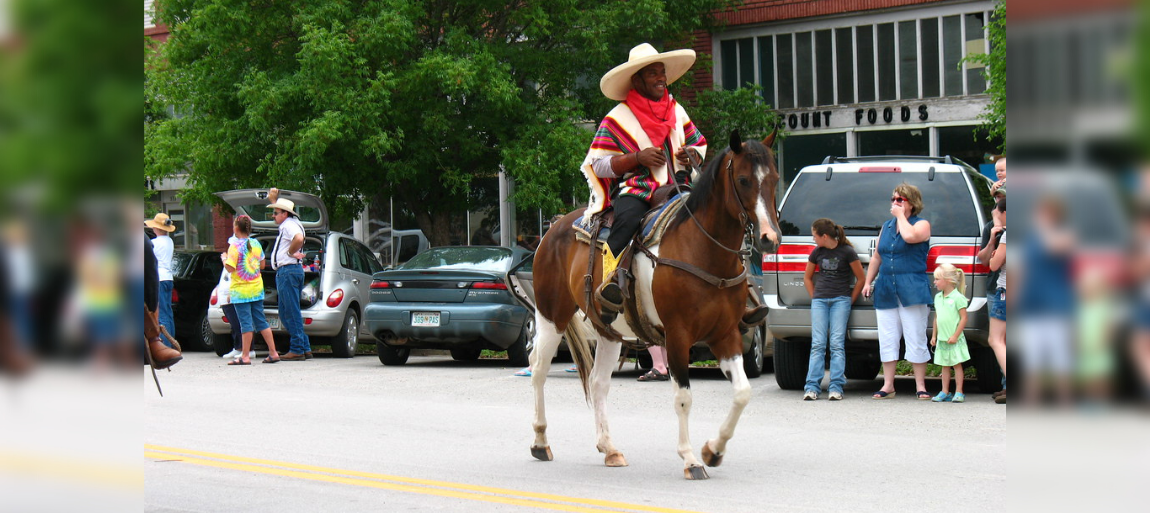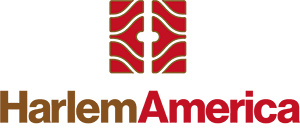
Black Cowboys in Harlem
Did you know the first Black rodeo was started in Harlem? “I showed the whole world: there have always been Black cowboys,” says Dr. George Blair.



Did you know the first Black rodeo was started in Harlem? “I showed the whole world: there have always been Black cowboys,” says Dr. George Blair.
Did you know that the first-ever Black rodeo was started in Harlem?
“I showed the whole world: there have always been Black cowboys. And there always will be,” says Dr. George Blair. Blair was recently featured on Humans of New York’s social media pages, and he tells a story about how he grew up on horses and struggled to find success in the rodeo circuit as a black cowboy. So in 1984, he organized the Black World Champion Rodeo.
The History of Black Cowboys
Like much of American history, many narratives have white-washed the stories of the Wild West era. In fact, historians estimate that one in four cowboys were Black, according to Smithsonian Magazine. During the Civil War, Texas Ranchers tasked their slaves with tending to their land and cattle herds while they rode off to war.
But there wasn’t yet any good way to contain cattle, and many ranches didn’t have near enough cowhands, most herds were out of control or lost by the time the war ended. And with the Emancipation Proclamation freeing all their slaves, Texas ranch owners had to hire newly freed Black cowhands. And thus, Black cowboys were born.
Black Cowboys in the Rodeo
The first Black honoree in the National Rodeo Hall of Fame was a cowboy named Bill Pickett. Pickett entered his first rodeo in 1888 and went on to become a popular rodeo performer who even found his way onto the silver screen in the 1920s. He is often credited as the inventor of “bulldogging”.
Bill Pickett died in 1932, but he wasn’t inducted into the National Rodeo Hall of Fame until 1972, 40 years after his death.
Though there were many great Black rodeo stars during and after Pickett’s time, this trend of shunning and erasing Black cowboys from historical narratives lasted into the 1970s and 80s.
Black Cowboys in Harlem
In 1969, four Black cowboys formed the American Black Cowboy Association and set about creating the first all-Black rodeo in Harlem. In 1971, Muhammed Ali even showed up to witness the Wild West descending into urban Harlem. The Association tried to get a permanent rodeo and events schedule up and running, but it never took off.
And then, in 1984, George Blair organized the first Black World Champion Rodeo. The rodeo took place annually in Harlem, Brooklyn, and Coney Island until 1997 (you can watch some of that footage here, thanks to the AP Archive).
To hear the story in his own words, you can watch an interview with Dr. George Blair on the Black World Championship Rodeo website, where he talks about the origin of the word “cowboy,” which comes from the roles and names given to Black ranch and cattle workers.
The Seeds of Change
In his interview with Humans of New York, Dr. Blair has some powerful things to say:
I organized The Black World Championship Rodeo. Nobody thought it could be done. It was the first rodeo ever held in a US urban city. But I got all the permits. I covered all the expenses from my own pocket. We flew in all the best Black cowboys from around the country, and we flew them first class. We held our first rodeo in Harlem’s Colonel Young Park. Colonel Charles Young was denied a generalship during World War I because he was Black. He rode his horse all the way to Washington DC in protest. The protest wasn’t successful, but sixty years later 20,000 people filled Colonel Young Park for the world’s first Black Championship Rodeo. And that number doesn’t even include the people peering down from the high-rise apartments.
From jazz to soul to rodeo, Harlem is the place where Black History comes to thrive.
Make Your Own Black History with HarlemAmerica
Whether you’re a cowboy, comedian, or change-maker, it’s time the Harlems of the world heard what you have to say. Start building fame, fortune, and followers by partnering with HarlemAmerica Digital Network today.
Interested? Check out our website to learn more about our small business membership packages.

